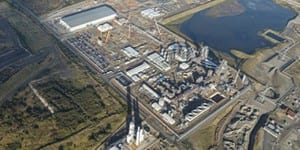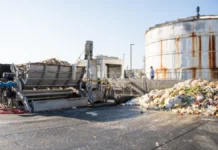PLANS to build a couple of ground-breaking plasma gasification energy-from-waste plants in Teeside have been scrapped, seemingly because of challenges with the technology.
The announcement came in March and follows a decision to halt construction of the plants in November last year. Pennsylvania based Air Products, the firm behind the development, cited difficulties with the first of the two 50 MW plants, which had been undergoing tests before the work was brought to a halt. These apparently highlighted “additional design and operational challenges” that would have required significant cost and time to overcome.
The 4 March announcement was to the effect that the firm will be discontinuing its Energy-from-Waste silo completely, to focus on its core business of Industrial Gases.
Good PR but not yet workable?
Although relatively undeveloped for waste feedstocks, gasification looks to have many advantages over traditional thermal treatment, and is unencumbered by the public opposition that often dogs plant proposals involving the latter technology, at least in the UK and US.
One unusual possibility that had been discussed in connection with the Teeside plants was that of generating renewable hydrogen for commercial use, such as with public transport projects.
However the technology is relatively new. The plant being built at Port Clarence, near Hartlepool, was to use advanced plasma gasification technology, employing extremely high temperatures to convert waste into syngas, which could then be used to power gas turbine driven generators and generate baseload electricity.
Air Product’s decision to discontinue development entails a write-off of around £770 million for the firm and has resulted in 700 job losses.
Union blames firm
A press release from the GMB union blamed “incompetence” on the part of the firm. “Both Tees Valley energy from waste projects, TV1 and TV2, have provided employment for the region but the inability of Air Products to purchase the right, proven technology and then its reported incompetence at rectifying the design flaws has now resulted in both plants being potentially scrapped”.
“The knock-on effect is going to deny work for the local supply chain and jobs for local people in both running the plants and maintaining them. You couldn’t invent a story like this if you tried”.
RDF producer Impetus Waste Management has said the decision will not affect its own operations in Teeside. IWM has been exporting to continental Europe since last year, a change of strategy intended to protect the firm from a possible Air Products closure.






